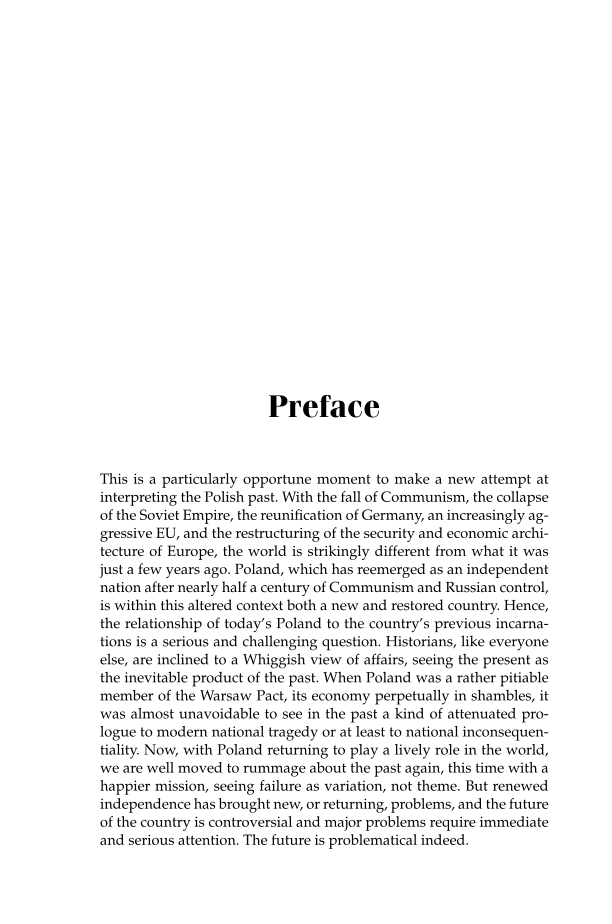Preface This is a particularly opportune moment to make a new attempt at interpreting the Polish past. With the fall of Communism, the collapse of the Soviet Empire, the reunifi cation of Germany, an increasingly ag- gressive EU, and the restructuring of the security and economic archi- tecture of Europe, the world is strikingly different from what it was just a few years ago. Poland, which has reemerged as an independent nation after nearly half a century of Communism and Russian control, is within this altered context both a new and restored country. Hence, the relationship of today’s Poland to the country’s previous incarna- tions is a serious and challenging question. Historians, like everyone else, are inclined to a Whiggish view of affairs, seeing the present as the inevitable product of the past. When Poland was a rather pitiable member of the Warsaw Pact, its economy perpetually in shambles, it was almost unavoidable to see in the past a kind of attenuated pro- logue to modern national tragedy or at least to national inconsequen- tiality. Now, with Poland returning to play a lively role in the world, we are well moved to rummage about the past again, this time with a happier mission, seeing failure as variation, not theme. But renewed independence has brought new, or returning, problems, and the future of the country is controversial and major problems require immediate and serious attention. The future is problematical indeed.
Document Details My Account Print multiple pages
Print
You have printed 0 times in the last 24 hours.
Your print count will reset on at .
You may print 0 more time(s) before then.
You may print a maximum of 0 pages at a time.

































































































































































































































































































































